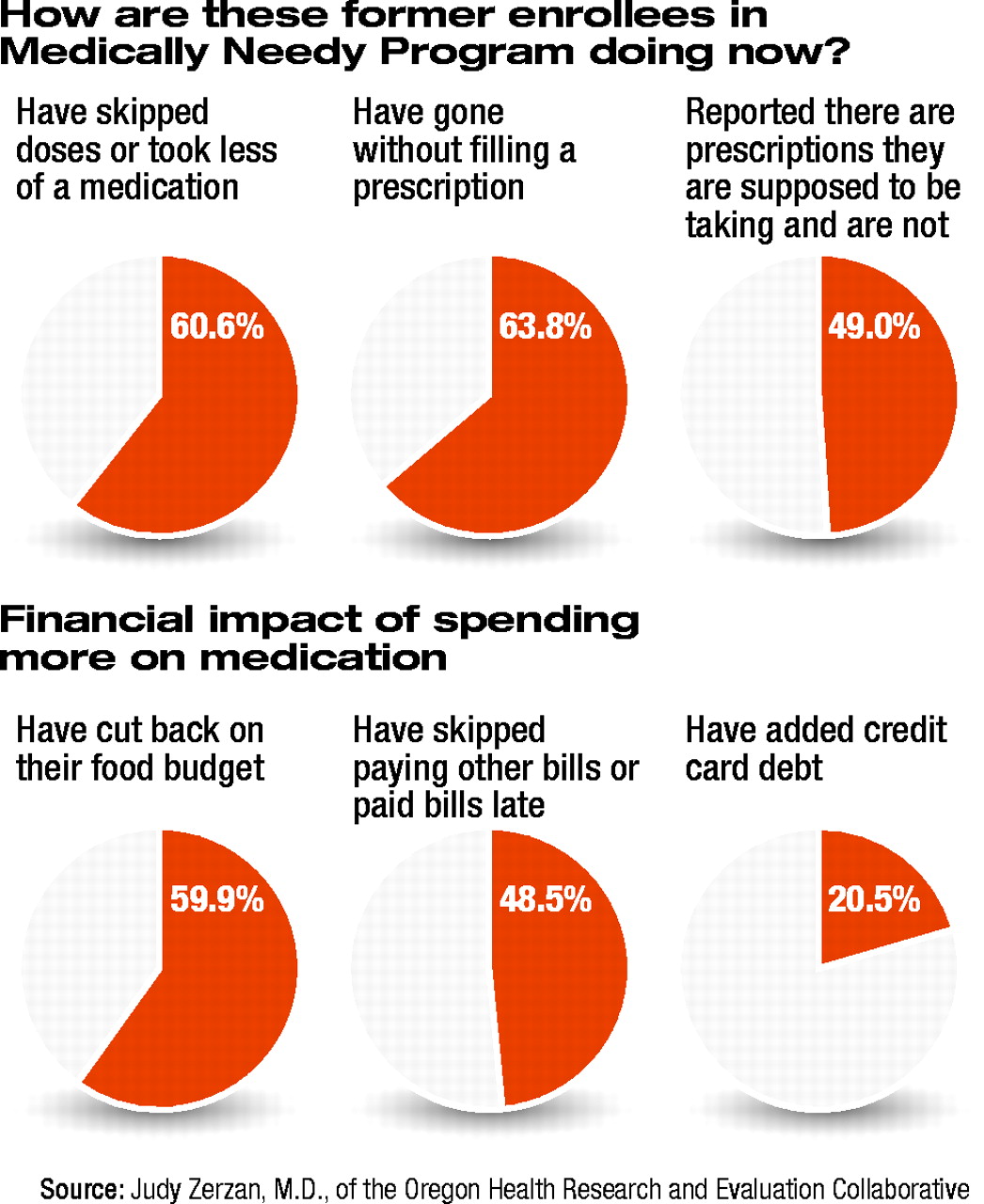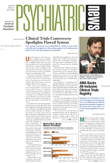Oregon state officials eliminated the Medically Needy Program in January 2003, when they cut benefits and beneficiaries from their Medicaid program.
Nearly 9,000 people lost benefits, which included prescription drug coverage, limited mental health services, and limited transportation services to access health care. The Medically Needy Program is an optional Medicaid service, available in 34 states, designed to provide access to various benefits to individuals whose high medical expenses reduce their available monthly income to a level specified by each state.
Judy Zerzan, M.D., M.P.H., described the impact of the program's demise in Oregon to attendees of the AcademyHealth meeting in June. AcademyHealth is a professional organization for health services researchers, policy analysts, and practitioners and a resource on health research and policy. Zerzan is an assistant professor in the department of medicine at Oregon Health and Sciences University.
The program covered 8,750 people, 69 percent of whom were adults with disabilities. Oregon specified a monthly income level of $413 or less, although eligibility can be gained in several ways.
Zerzan developed a 49-item survey instrument to collect information related to issues of changes in health status, prescription drug use, and financial impact on the former program beneficiaries.
A data-collection contractor telephoned a sample of that population six months after the program terminated, with a completion rate of 58 percent. Ninety-five percent of the respondents were unemployed; 85 percent had an annual income of less than $15,000, and the average age was 58.
Respondents reported an average of 3.5 chronic medical conditions, and 8 percent reported a diagnosis of schizophrenia.
They reported an average of 5.5 prescriptions each month. Twenty-six percent reported a prescription for an antipsychotic medication.
Forty-eight percent reported that they were paying for prescriptions drugs out of pocket, with average monthly out-of-pocket costs ranging between $1,200 and $2,388 a year.
Sixty percent reported that they had cut back on their food budget to pay for medications, and nearly half reported that they skipped paying bills, paid bills late, or borrowed money from family or friends to pay for medications (see chart).
Sixty-one percent have skipped doses of medication, and 64 percent reported that they had refrained from filling a prescription because of cost (see story at left).
Patient-assistance programs, which are operated by pharmaceutical companies, offered some relief. Forty-five percent use the programs, but respondents (82 percent) report that they cannot get all the medications they need.
A research brief on the Medically Needy Program Survey is posted online at<www.ohppr.state.or.us/OHREC%20welcome2_files/OHREC%20Research%20Briefs.htm>.▪

